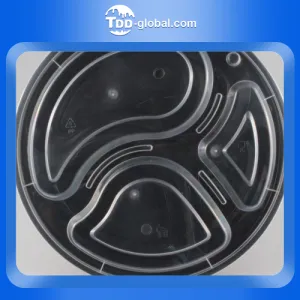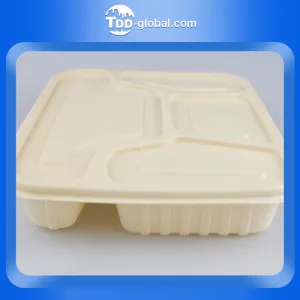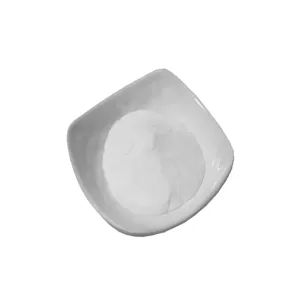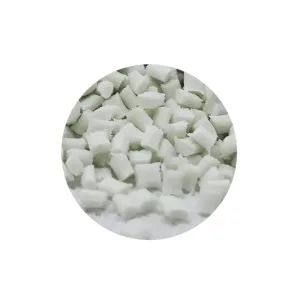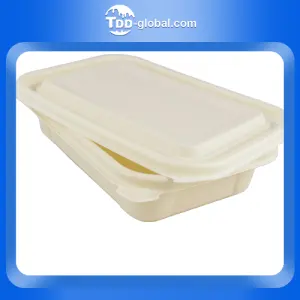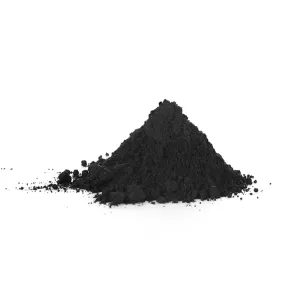Shift towards integrated manufacturing: Maulik Patel, CMD, Meghmani Finechem

India is on a very promising trajectory in its bid to be a US $5 trillion digital economy. To realize this goal, the Indian chemical Industry has a huge role to play. The government estimates that by 2025, the chemical Industry will grow to a sizable US $304 billion and attract investments of over Rs. 8 lakh crore.
One of the biggest challenges we face as an industry is contracting gross margins due to soaring raw material costs and increasing operating costs due to higher freight, especially owing to the backdrop of the COVID pandemic. The charter for stabilization has already been prescribed by the government with PLI (Production Linked Incentives) initiatives such as Aatmanirbhar Bharat, Make in India, etc. However, there needs to be more focus on manufacturing essential chemical compounds in India and controlling the extent to which we import essential chemical compounds such as ECH (Epichlorohydrin), CPVC (chlorinated polyvinyl chloride), and Chlorotoluene.
ECH is an epoxide and a colourless liquid. From a technical perspective, in India, 80% of ECH goes into Epoxy Resin manufacturing and in turn, it goes into Industries such as paints & coatings, adhesive, construction, automotive, windmills, electronics, and other industries. The remaining 20% of the ECH is consumed by the pharmaceuticals industry and for making water treatment chemicals.
ECH has a huge potential in the chemical industry, as per a Grand View Research report, the ECH global market is projected to reach US $4.40 billion by 2030. In short term perspective, the consumption of ECH globally from 2021 – 2026 annually, is said to be at an estimated rate of 4-5%. Additionally, with government spending on infrastructure, the developments in the manufacturing sector, automobile sector, and windmill segment in India, the demand for epoxy resin is only said to increase, thus leading to a higher demand for ECH in the country. Currently, as of FY 2022, India’s demand for ECH is completely met by imports (100%) from Thailand, Indonesia, Korea, etc.
CPVC or chlorinated polyvinyl chloride is another important chemical compound that is the key component for making high-quality durable pipes. CPVC is an industrial-grade set-up used for thermoplastics to improve its properties, such as heat resistance and flame retardation, making it the best building component for developing and manufacturing pipes.
As per Bonafide Research, the Indian plastic pipe segment is expected to grow at a CAGR of more than 13% for the next five years. Today CPVC based pipes are used as hot water pipes in houses & buildings and industrial applications due to their temperature resistance property. Globally many countries use it in fire line applications also.
Currently, India imports 95% of its demand for CPVC from countries such as Thailand, Japan, China, Korea, etc. Meghmani Finechem Limited (MFL), a chemical manufacturer in its promise aligned with the ‘Make in India’ initiative is also an industry-first to manufacture several of these important chemical compounds that need to be imported from overseas. The company leads by example when they announced to set up a sustainable manufacturing plant in India to manufacture ECH at its factory at Dahej in Gujarat. There is a huge potential for an ECH manufacturing hub in India, with around 75,000 tonnes of ECH on annual consumption and India imports all of its ECH requirements. To be able to compete on a global level and make India a global manufacturing hub, Indian chemical manufacturers need to take notice and manufacture com[1]pounds such as ECH, which are completely being imported from overseas, thus reducing overheads, shipping costs and retaining the domestic currency and balance of payments.
Meghmani Finechem towards this initiative has set aside a Capex of Rs. 275 crore. Additionally, the manufacturing plant will be using the Glycerol process where its major raw material (Glycerin) is based on a renewable resource. Thus leading the dialogue for creating ‘Make in India’ while remaining sustainable, environment-friendly and carbon-neutral. It’s been a long time due, that manufacturing companies introspected their processes and opted for alternatives that are carbon-neutral, environment-friendly, and sustainable for future generations.
CPVC resin holds a very important role in the piping and plastics manufacturing industry. With almost 95% imports from overseas, the need of the hour for the Indian chemical and manufacturing industry is to build manufacturing capabilities to produce CPVC resin in India and compete on a global scale.
Meghmani Finechem had announced a forward-integration initiative to manufacture CPVC resin at its Dahej manufacturing unit. The unit will be functional within a couple of months and will have a capacity of over 30,000 MT.
This will be the largest CPVC resin manufacturing plant in India and will aim to curb the imports and dependency on imports for meeting CPVC resin demands. This is one of the several key initiatives by the organization in addition to the announcement of the sustainable ECH manufacturing initiative. To enrich its enterprise value, MFL is continuously moving with its planned expansion projects and adding value through forward integration.
The company’s expansion into the chlorotoluene and its value chain is yet an example of Indian chemical manufacturers making leaps into the global value chain. The Rs. 180 crore project is the first plant in India into toluene chlorination and will produce pharmaceutical and agrochemical intermediates. Indian Chlorotoluenes and its value chain demand are fulfilled through imports and hence, this facility will cater to the requirement for domestic and export markets.
In today’s world, it is essential to be fully integrated complex, Meghmani Finechem has over the past few years have entered into value-added derivative products which strengthened its fully integrated complex and by further entering into ECH, CPVC and Chlorotoluene and its value chain, the company is further strengthening its position as fully integrated complex, as part of the raw material required for these products are available within the plant itself.
This brings efficiency to the plant, helps to improve margins, and creates value for its stakeholders. Also, MFL has done various Capex in the past for adding value-added products, MFL has always remained efficient in completing the projects on time and using the best and latest technology.
Parallelly, MFL is aiming to develop a state-of-the-art, world-class R&D centre that will help the company identify new molecules in the Chlorotoluene eco-system and further strengthen the fully integrated facility. This investment in the R&D centre will be the foundation for the next phase of growth of the specialty chemical market. The facility will be set up at Changodar, Ahmedabad.
For India to be sustainable and be a global manufacturing hub in the chemical manufacturing space, a series of initiatives need to be undertaken by the government and private entities. For starters, the chemical industry needs to be recognized and incentivized by the government, like the case of the pharmaceutical industry. Additionally, having a consistent model of power and energy would go a long way in powering up the chemical Industry. For Instance, different states have different DISCOMs, different power compliance policies and grids. For chemical companies to manufacture sustainably and remain carbon-efficient, the need of the hour is to create a consistent power distribution eco[1]system throughout the country. This should also be reflective on special economic zones, industrial belts such as the Gujarat PCPIR (Petroleum, Chemicals and Petrochemicals Investment Region) i.e. the Dahej, Bharuch region. Capitalizing, incentivizing and ensuring seamless energy and power supply, infrastructure deployment within these regions is an initiative that will go a long way in encouraging companies to invest, manufacture and help India realize its potential as a global manufacturing hub.
Register Now to Attend NextGen Chemicals & Petrochemicals Summit 2024, 11-12 July 2024, Mumbai
Recommended Suppliers
 September 23, 2024
September 23, 2024  June 3, 2024
June 3, 2024  June 3, 2024
June 3, 2024  June 17, 2024
June 17, 2024  June 18, 2024
June 18, 2024 
